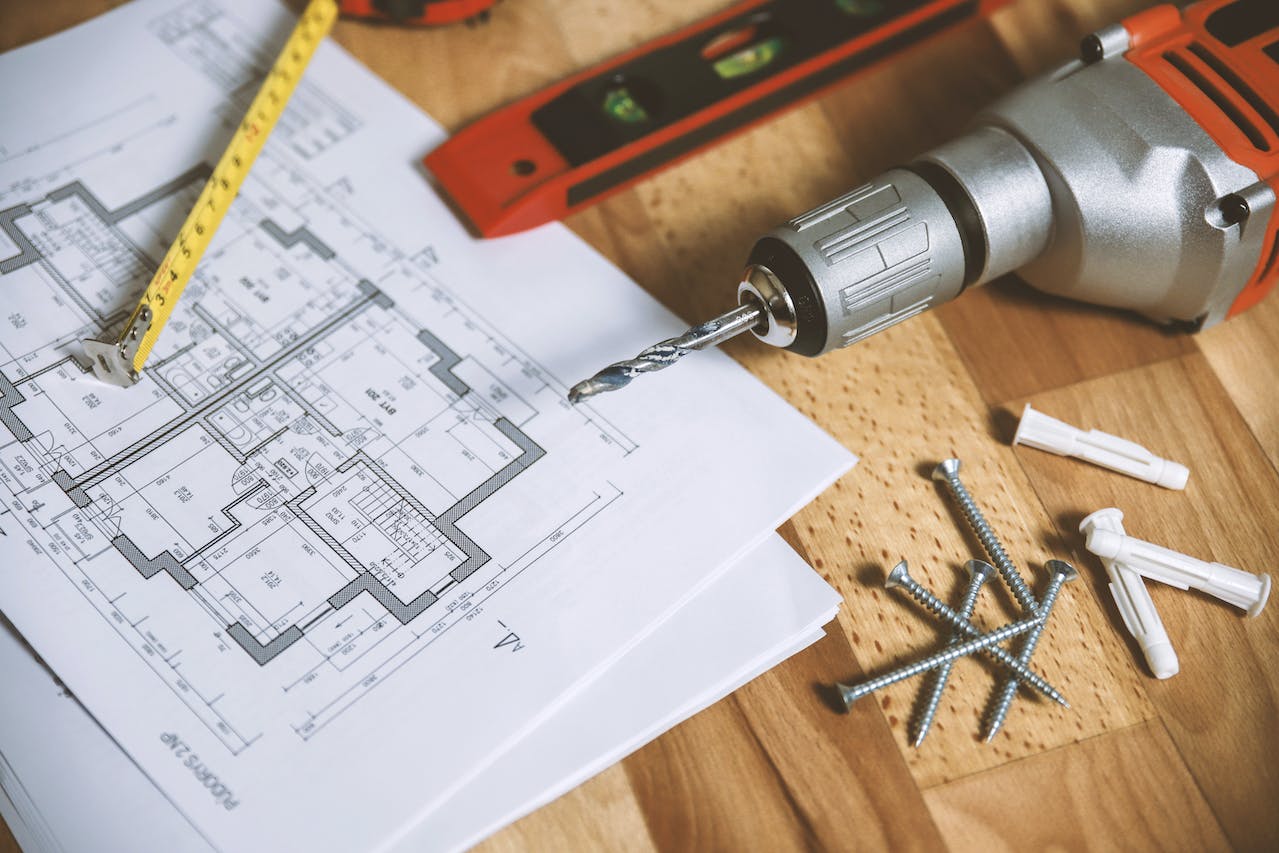If getting a low down payment on an investment property is possible and how to go about doing it
What is a Down Payment?
A down payment is the initial payment you have to make towards a home. When financing a home, lenders usually ask for a down payment to reduce the amount on the loan, effectively reducing their risk. Not only does it reduce overall risk, but it also shows the seller that you’re committed to the purchase. While a larger upfront down payment needs additional savings, it means a smaller loan for the borrower, which can lead to potentially lower interest rates and avoiding private mortgage insurance (PMI).
Typical Down Payment Requirements for FHA, Conventional, and Non-QM Loans
The typical down payment requirements for these three types of loans vary significantly. Generally, you can expect:
- FHA Loans: Down payments as low as 3.5%
- Conventional Loans: Down payments anywhere between 5% to 20%
- Non-QM Loans: Down payments anywhere between 10% to 30%
Keep in mind that all three down payment requirements will depend on the lender, your credit score, and other qualifying factors. Compared to FHA and conventional loans that allow down payments as low as 3.5% to 5%, non-QM down payments tend to be slightly higher. However, a non-QM loan can offer a path to homeownership that otherwise might not be possible, and some non-QM lenders offer down payments as low as 10%, which falls right about average with conventional loans.
Using an FHA Loan to Buy an Investment Property
Purchasing a multi-family property with up to four units with an FHA loan is a strategy for some investors. Keep in mind though, FHA loans are not intended primarily for investment properties.
However, and in this case, the FHA allows loans for owner-occupied properties with up to 4 units. Under this arrangement, the owner lives in one unit as their primary residence while renting out the other units to generate rental income. Owners who buy multi-unit buildings this way may receive enough rent to live rent-free in their unit and even profit.
Another option is to rent out your primary residence if you have to relocate for work and need a second home. After living in your home for a year, you can rent it out and it will still comply with FHA guidelines. Additionally, you can rent out rooms in your primary home without violating FHA rules.
Primarily, though FHA loans are used as a low down payment option for general first-time homebuyers looking to purchase primary residences. With down payments as low as 3.5%, FHA loans make homeownership more accessible for people who have less upfront capital.
Using a Non-QM Loan to Buy an Investment Property
Using a non-QM loan to buy an investment property can be a viable path for real estate investors and others who have non-traditional income streams. Real estate investors, self-employed individuals, business-owners and independent contractors may not have documents like pay stubs, W2s, and tax returns which would be required to qualify for a conventional loan.
There’s a variety of non-QM loans that are available for borrowers in unique circumstances, like real estate investors. While the down payment requirements will depend on the lender and the specific loan type, these loans can provide the capital needed to buy an investment property, and even make necessary repairs and upgrades.
Unlike FHA loans which are meant for primary residences, more non-QM loan options are specifically tailored for real estate investing. This means that you won’t be required to purchase a multi-family or live in the investment property and there’s no need to wait a minimum of one year before renting it out.
Non-QM Investment Property Financing Options
Below, we’ve gathered a list of non-QM investment property financing options that have been designed to accommodate certain types of borrowers such as real estate investors, self-employed, entrepreneurs and contractors:
DSCR Loans
- Uses DSCR ratio (property’s rental income) as a main qualifying factor
- Great for investment properties that have rental income
- Maximum LTV: 85%
Bank Statement Loans
- Uses bank statements as a means to qualify rather than tax returns, W2s or paystubs
- Business or personal bank statements
- Great for self-employed individuals or those with an irregular income stream
- Maximum LTV: 90%
Profit & Loss (P&L) Loans
- Uses business profit & loss statements as a main qualifying factor
- Keep in mind that you must be self-employed for at least 2 years or the business must be in existence for at least 2 years
- Great for business owners that make most of their income from their business
- Maximum LTV: 90%
Fix-and-Flip and Construction Loans
- Uses historical experience as a main qualifying factor
- Great for real estate investors who are looking to flip properties or build from the ground up
- Maximum LTV: 85% loan to cost for fix-and-flip loans (completed value up to 70%) and 90% loan to cost for construction loans (up to 70% as completed value)
Foreign National Loans
- No FICO or SSN required making it a great option for foreign nationals looking to purchase an investment property in the U.S.
- DSCR options for investment properties
- Maximum LTV: 75%
Interest-Only Options
- No requirement for a principal paydown
- Fixed rates of 5/7/10 yrs and 30-year or 40-year loan amortization
- Maximum LTV: 85%
These non-QM investment property financing options are all loan options that we offer at Defy under our comprehensive AlternativeAdvantage and ProfitPro product sets. At Defy Mortgage, we aim to elevate the lending experience for non-traditional borrowers in unique circumstances. Obtaining a mortgage should be an empowering experience, where borrowers feel confident, informed, and in control every step of the way. Check out our financing options to see which loan type is best for your next investment property purchase or refinance.
Benefits of Non-QM Investment Property Loans
There are several potential benefits of non-QM investment property loans over conventional mortgages:
- Less strict credit requirements
- Alternative income verification methods with flexible underwriting
- Overall less paperwork required
- Higher loan amounts may be offered
- Can often close quickly
- Diverse loan products that can accommodate borrowers with a wide range of needs
- Specialized lenders like Defy understand the rental property market
FAQs
How do I finance an investment property?
When it comes to financing an investment property, there are several different options you can choose from. Financing options include conventional loans, government-backed loans, and non-QM loans from private lenders.
What factors should I consider when choosing an investment property?
Before choosing an investment property, it’s important to carefully consider these factors:
- Location
- Rental demand
- Vacancy rates
- Property condition
- Repair costs
- Appreciation potential
- Market trends
- Legal and tax implications
How do I calculate the potential return on investment (ROI) for a property?
The potential return on investment (ROI) can be calculated by subtracting total costs (including purchase, renovation, and ongoing expenses) from the expected income gained through rental or resale, then dividing by the initial investment and multiplying it by 100 to get a percentage.
Should I invest in residential or commercial properties?
The decision to invest in residential or commercial properties will depend on personal factors, such as your risk tolerance, investment goals, and available capital. Residential properties offer easier entry, stable income, and potentially higher appreciation. Whereas commercial properties need more capital, have higher risk, and can offer potentially higher returns.
What are the risks associated with investment properties?
Some risks to consider with investment properties are:
- Vacancy periods
- Tenant damages
- Tenant defaults
- Property depreciation
- Market fluctuations and/or economic downturns
- Unexpected maintenance costs
- Changes in regulations
How do I find tenants for my investment property?
You can find tenants for your investment property by advertising on rental platforms, working with real estate agents, networking, or using a property management company. Some good ways to incentivize tenants to rent are offering competitive rent prices, maintaining the property, and fostering good tenant relationships. Speak with your lending partner about property management and what you need during your loan process.
Can I get a DSCR loan for my investment property with 10% down?
While quite rare, it may be possible to get a DSCR loan with only 10% down depending on the lender’s requirements, the property itself, and other qualifying factors. At Defy, we offer DSCR loans with a minimum of 15% down.
How do low down payments affect mortgage terms and interest rates for investment properties?
Generally, low down payments lead to higher LTV (loan-to-value) ratios, which means that a bigger portion of the property’s value is being financed by the loan. Depending on the lender, this could potentially result in higher interest rates, private mortgage insurance (PMI), and stricter qualifying terms.
Are there any special programs or loans available for real estate investors?
Yes, some real estate investors may be eligible for government-backed loan programs like FHA, USDA, and VA loans depending on their circumstance.
What are the loan options available for investors looking to make low down payments?
Investors looking to make low down payments should consider FHA loans, which can have down payments as low as 3.5%, conventional loans with down payment assistance programs or non-QM loan options specifically designed and customizable for real estate investors.
What are the risks associated with making a low down payment on an investment property?
The main risks associated with making a low down payment on an investment property are higher mortgage payments, increased leverage, and potential challenges with covering expenses during any vacancies.
How does the loan-to-value (LTV) ratio impact the down payment requirement and overall financing for investment properties?
Most lenders will set a maximum LTV ratio that they’re willing to lend out for any given loan type. Think of it as the opposite of a down payment – if you’re putting 20% down, that means that you’ll have 80% (100% – 20%) LTV on the loan. Maximum LTV ratios set by lenders essentially set the minimum down payment requirements. Another example is if a lender has a maximum LTV of 85% on a certain loan type, that means the minimum down payment required will be 15%.
Can I use alternative financing options, such as seller financing or private lending, to make a low down payment on an investment property?
Yes, you can use alternative financing options to make a low down payment on an investment property. Just keep in mind that terms and conditions may vary depending on the agreement reached with the seller or private lender.
How do lenders evaluate the eligibility of borrowers seeking low down payment options for investment properties?
Lenders evaluate the eligibility of borrowers seeking low down payment options by using a variety of factors:
- Credit score
- Income stability and verification
- Debt-to-income (DTI) ratio
- Rental income potential of the property
- Financial reserves
- Overall investment experience









